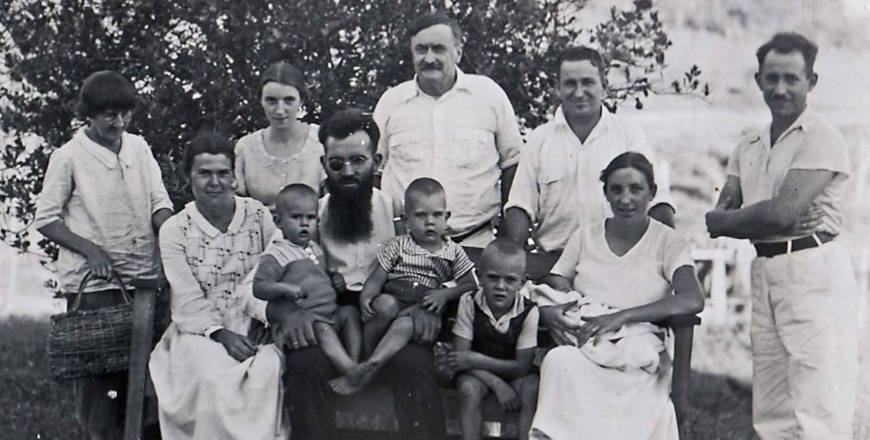Leslie Schirmer was born on April 23, 1907. He was the eldest of seven children and lived at Walla Walla. He left for New Guinea by boat in August 1934 (the journey took three weeks), after a commissioning service conducted by Rev. J.T.P. Stolz. Les worked on the mission ship BAVARIA, but he also helped […]
Leslie Schirmer was born on April 23, 1907. He was the eldest of seven children and lived at Walla Walla. He left for New Guinea by boat in August 1934 (the journey took three weeks), after a commissioning service conducted by Rev. J.T.P. Stolz.
Les worked on the mission ship BAVARIA, but he also helped on other jobs as needed (such as helping at the Timbulin Plantation near Finschhafen). Their pay when he started was 40 pounds per annum plus food and work clothes!
After 5 years he was due for leave but was only able to take it in 1941. His return to New Guinea was planned for February 1942. Just before his departure, word was received that no more civilians were allowed to return because of the war. Les lived the remainder of his life in Walla Walla.
Les’ daughter Glenda went to New Guinea in 1963-64 and 1967-68, following in his footsteps.
It was 1938, and Dave Rohrlach was away on his honeymoon. I had been working on the BAVARIA for about 4 years and was now in charge until Dave returned. Adolph Obst also shared this responsibility at times. Our trip was from Kalasa (Sialum) to Finschhafen and there was cargo and about 12 Europeans on board. Being at sea was always risky and I had the responsibility of these people’s lives as well. We had a rough sea that day.
Each 8 hours the ship’s motors were serviced – oil was added. The New Guinean crew were used to this routine, but somehow the service was missed and I didn’t realise it.
When we were a short distance from the shore, one New Guinean came and told me, “Masta, masin em I pairap no gut.” There was this great thumping noise and vibration. We dropped anchor, hoping this would help hold the boat. Down in the engine room the gauge was flat.
I decided we’d need to get closer to shore, and so we weighed anchor and negotiated the reef into the sheltered place – there the motor died.
There were two boats: one the surf boat that we towed behind – this was missing. But the second one, carried on the side, was lowered, and one of the people on board sent a message that we were all safe, but that the engine broke down.
The task could not be delayed – the repairs had to be made. Fortunately spare parts were always on board, and we dismantled the engine to repair it. The cylinders and pistons were in good shape, but further inspection revealed that the big end bearing on one cylinder had given out. The work would take 2 or 3 days to complete. It was very precise work as the shims had to be very exact to make it all work.
The surf boat that we towed behind the BAVARIA was noticed on the other side of the reef. The sea had brought it back to us.
Being the ship’s master, I was very concerned for the lives of the people on board – but this fear lessened, because the people were safe and the boat was in a sheltered place.
Eventually we reached our destination, thankful to God for our safe arrival.
If you would like to consider the opportunity to serve as a volunteer in mission, serving in practical ways, teaching English, teaching in the seminaries and institutions of our partner churches, or in local churches, you are invited to phone LCA International Mission on (08) 8267 7300 or email lcaim@lca.org.au. For more information, go to https://www.lcamission.org.au/join-gods-mission/volunteer/
Read more stories about volunteering at www.lcamission.org.au/category/join-gods-mission/volunteers/


0 Comment